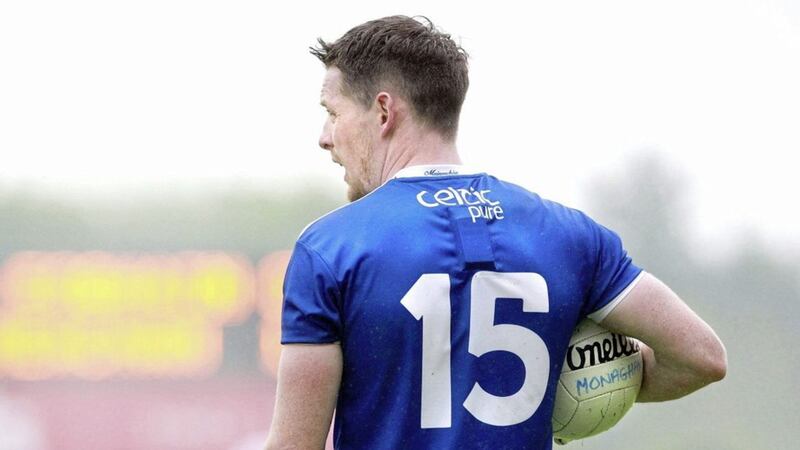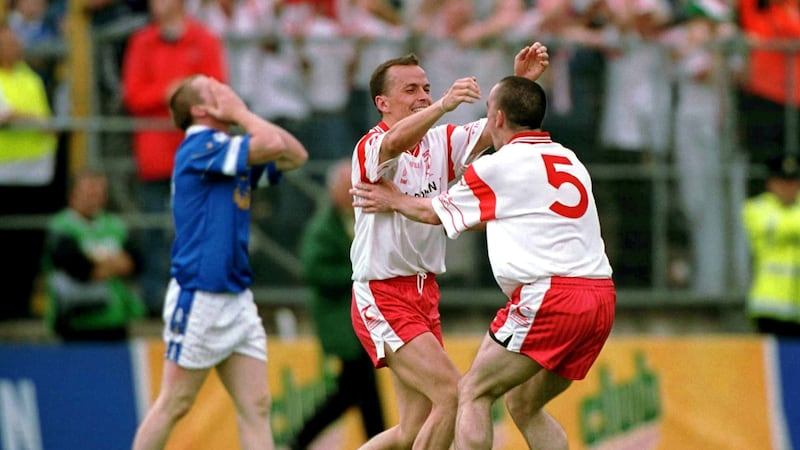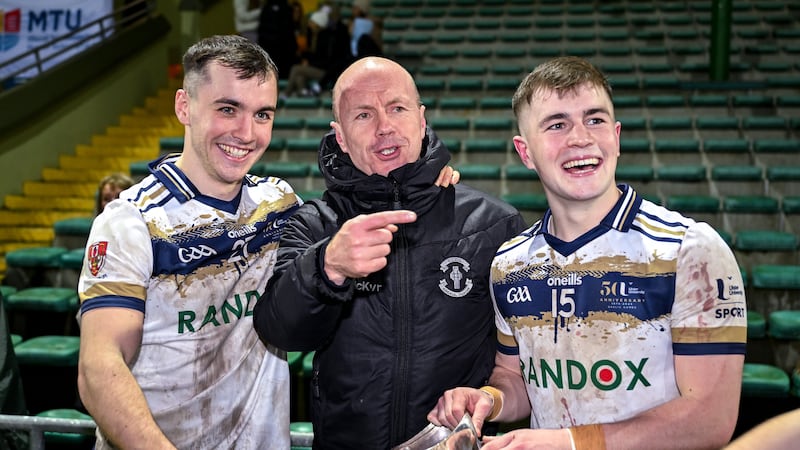AS the Monaghan players filed one-by-one out the back exit of St Tiernach’s Park, their faces were hardly wide enough to cope with the smiles.
One of the last men to amble slowly from the dressing room to the car was Conor McManus.
It was half a walk and half a limp.
95-plus minutes of football was tough on all the bodies in Clones. None of them would have needed rocking to sleep on Sunday night.
But watching McManus help save their top-flight status once more, there was a reminder that for all that the Superman moments create a sense of invincibility, there’s nobody out there that isn’t Clark Kent too.
McManus’s hip problems are no revelation. He has spoken about their impact on him throughout his career.
The legacy of being in an arm-wrestle with Nudie Hughes to be recognised as the greatest footballer ever to put on a Monaghan jersey is intertwined with the legacy of an impending hip replacement.
In an interview with this parish’s Brendan Crossan at the beginning of this year, he was circumspect about the whole idea.
“The damage is done now. No matter what I do over the next two, three, four or five years – or however long it’s going to be when I finish up with Clontibret – the damage is done… I’d love to be fit, but just turning up and playing are long gone for me. I haven’t been able to do that for about 10 years.”
At the beginning of extra-time on Sunday, he was visibly managing his running. You could almost see him starting to stiffen. Half-time, water breaks and the extended stoppage before extra-time wouldn’t help with an injury that wants the body to keep moving.
Coming 34 in November, the realisation is dawning that whether it’s this year or next year or the year after, there aren’t many days left of watching him at the top level.
All of that makes his game-saving contribution on Sunday all the more impressive.
After seven years, Monaghan’s Division One status hung by the thinnest of threads. David Gough had his watch in permanent view, his whistle hand ready.
Monaghan were just about close enough to goal that he couldn’t blow it up, and just about holding on to the bar of soap that they thrice threatened to drop.
And then it fell at the feet of McManus. Conor Boyle had just got it thrown out of the tackle in time before he was blown for over-carrying, but McManus had to go after it as though it was at the bottom of a ruck.
A career of taking the defender’s space made it second nature. He dipped his head across the line of Dylan McHugh, found his space and kicked the most dramatic of levellers.
It was nothing new. Since he moved into the attack in 2012, 17 per cent of McManus’s scores in championship games (1-35 out of 8-199) have come in the last ten minutes. 40 per cent of those clutch moments have been from open play.
In other words, when Monaghan have needed him most, he’s tended to deliver.
Any great career will involve exceptions. He had a free to put Cavan away in stoppage time last year but pushed it wide. In a knockout summer, Monaghan fell on the knife-edge.
The story turned on him. In the first half, faced with the adversarial Padraig Faulker who had grown great confidence in their battles, McManus was almost unplayable. He had 1-4 by half-time.
Monaghan started arsing about on the ball after the break. Without the ball, it doesn’t matter how good a forward you are.
There are only imperfect careers.
McManus would not argue that his, even with three Allstars and a reputation of being as good as anything out there, has been anything different.
For every missed free against Cavan, there’s a 1-7 against Armagh in 2014, when he pushed the Orchard back at every turn.
There’s his six points in Omagh three years ago, including that early wonder-score and four of their last six points to settle the game.
Or the 50-yard howitzer against Donegal in 2016 that helped them grab a replay, or his 12 points in an unforgettable display in Croke Park as he took the Dubs on single-handedly in a league game earlier that year.
Under Malachy O’Rourke, Monaghan seldom kicked through him. There was no early ball, no chance of one-on-one contests. So he adapted and made a trademark out of coming on the loop.
If a defender could slow him up then McManus seldom scored. So he made himself the market leader in coming off the shoulder and getting the shot away from whatever angle he was facing.
Be it the hip injury or the nature of Ulster football in the era he played, he had to reinvent his whole way of playing football.
Is it an exaggeration to suggest that Conor McManus changed inside forward play as much as Stephen Cluxton changed goalkeeping?
Perhaps he picked it up somewhere else, but he was the forward who perfected the art of the loop. It's his template that every forward in Ireland is following.
The top inside men no longer prioritise winning the ball. The great ones don’t even look for it.
Pulling wide, waiting for the opportune moment to strike with the angled run inside, none have been more proficient than the Clontibret man.
He’d spent hours upon hours of kicking from every conceivable angle. No time to think. Get the ball, open the body up, shoot.
That famous score in Omagh, perhaps the score he will best be remembered for when he goes, was no fluke. That’s an angle of the field that he’s perfected kicking from.
Monaghan supporters know how lucky they’ve been to have had him. They know that, hand-on-heart, this run of top-end football is finite. The fortunes of small counties are cyclical and largely dependent on maximising whatever bit of genuine class falls their way.
Some year soon, the day will come when the ground starts to harden and he won’t be there, quietly throwing off his tracksuit top to reveal the number 26, popping out of hibernation halfway through the league, limbering up for a summer charge at it.
Conor McManus is just a normal, fragile, skin-and-bone human.
His ability to do superhuman things with a football should be cherished while it lasts.








